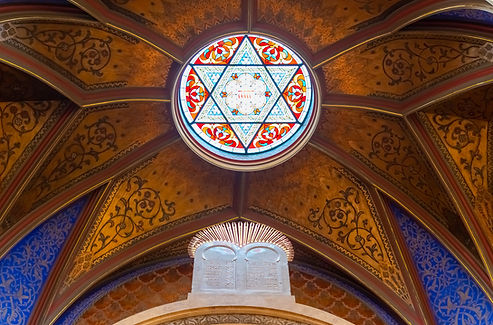
WHAT IS A CLOSED PRACTICE?

As a metaphysical supply shop, we meet a wide variety of people from all walks of life. We are fully inclusive and welcome all religions, paths, and practices as we are not here to judge anyone beliefs or customs. As an inclusive space, we are often asked why we don't carry certain products (such as white sage, dream catchers, voodou dolls, etc). As people of mainly European descent, we feel that we have no right nor any cultural claim to carry or profit from these products. While some products may overlap into many different religions or customs, we avoid those directly tied to specific groups, religions, tribes, or cultures. We respect all practices, including those who wish to remain closed.
So, what is a closed practice exactly? Close practices refer to those religions, customs, and traditions that are directly tied to familial and cultural communities. There are many misconceptions surrounding closed practices and many feel threatened by the idea of inaccessibility and exclusion of others. But in reality, these practices are not aiming to exclude or discriminate but instead preserve traditions, teachings, and customs that have been passed down through familial and tribal communities.

Some common closed practices include:
-Indigenous Tribes and Customs (smudging, white sage, dreamcatchers, Palo Santo, spirit animals)
-Voodou & Hoodoo (sour jars, poppets/dolls, can sometimes be semi-closed if invited)
-Santeria (typically viewed as closed but can be initiatory in some instances)
-Shinto (mixed views, with some sects being fully open and semi-open)
-Hinduism (some sects are closed)
-Judaism (semi-closed, marriage or formal conversion is required)
-Amish (typically closed but can be initiatory in some instances)

Closed practices can include things such as rituals, religious garb, ceremonial magic, herbs and resins, talismans and religious items, communal customs and knowledge, tattoos and markings. Anything sacred or spiritual to a particular group, culture, or ethnicity could be considered closed practice. The importance can differ from group to group, but these customs and practices are often deeply intertwined into history and lineage. Sometimes these customs can be 'semi-closed' or initiatory, requiring an invitation from current members to convert or adopt the customs of the group. These types of practices are far more accessible but will often require mentorship, apprenticeship, or training.


Closed practices most commonly stem from historical oppression, often associated with the demonizing, persecution, or eradication of traditional practices and/or peoples. The need for cultural preservation and the desire to maintain traditions became vitally important to these stigmatized groups. Understanding the history and ethnical ties to religion, customs, and practices is very important, especially if you are seeking out new ideas, adding to your practice, or considering conversion. Respecting closed practices and the people associated with them, ultimately protects the authenticity, heritage, and identity of marginalized groups.
.png)


